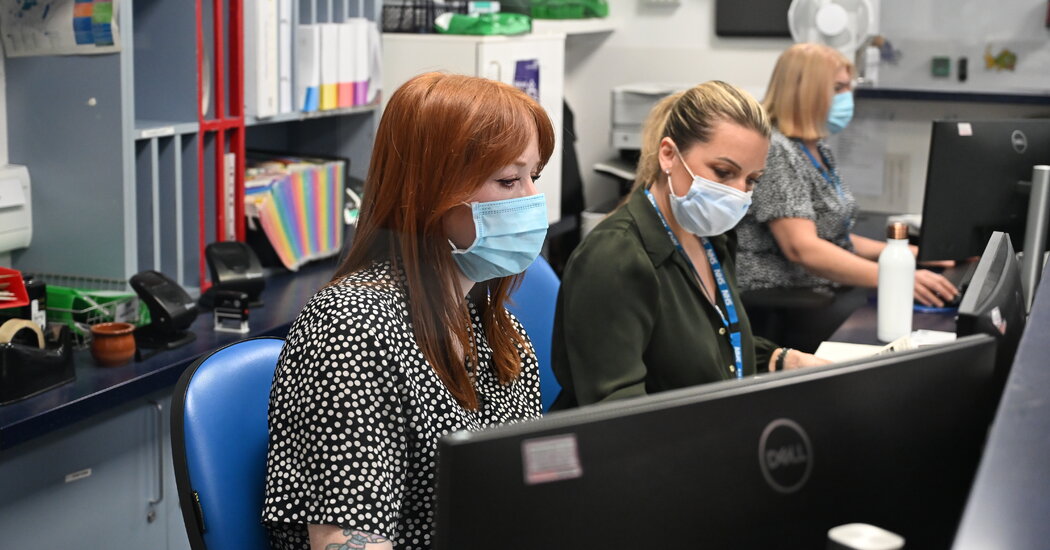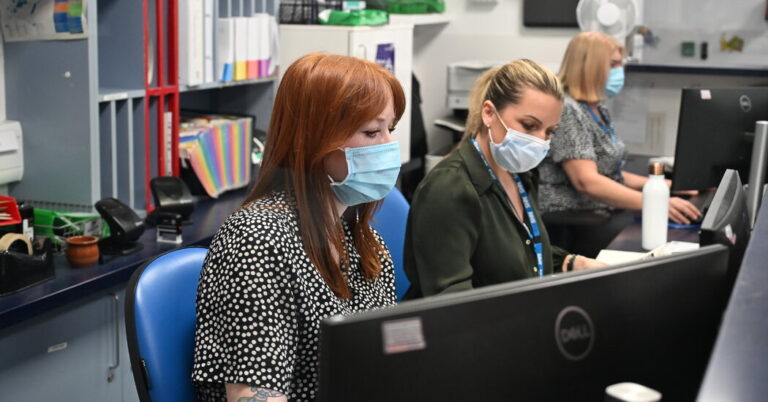Patients are dying in British hospital corridors. Pregnant women receive abortion care in semi-public places. Incontinent patients are cleaned next to vending machines.
These are just some of the shocking revelations contained in a report published Thursday by the Royal College of Nursing, a British nursing union. In the report, nurses described an overcrowding crisis that they say has led to a collapse of care, privacy and dignity across the country’s National Health Service.
“Vulnerable people are being stripped of their dignity and nursing staff are being denied access to vital life-saving equipment,” Nicola Ranger, the union’s general secretary and chief executive, said in a statement.
The nation’s health workforce has reached a “breaking point”, the report adds.
The 460-page report, which features anonymous testimonies from more than 5,400 nurses interviewed from December 18, 2024, to January 11, is the latest mayday from British medical professionals. The union granted anonymity to its members so they could speak freely, avoiding repercussions from employers and protecting patient confidentiality, a spokeswoman said.
Doctors and nurses have struggled to care for the nearly 70 million people in the UK after years of challenges, including chronic underinvestment in the NHS under the Conservative-led governments that held power from 2010 to 2024.
“This must be a watershed moment, a line in the sand,” Dr Adrian Boyle, president of the Royal College of Emergency Medicine, said in a statement.
Dr Boyle was one of many leading British doctors to express solidarity with the nurses. He called the testimonies “heartbreaking.”
“The cost of personnel is clear,” he added. “People in tears, frustrated, angry and in some cases even giving up on their careers because they can’t face the idea of going to work every day and not being able to provide the level of care they want.”
The nurses’ report, which describes a “corridor care” crisis, comes just months after another blockbuster report found the NHS was in a “critical” condition.
According to the government-commissioned report published in September, patients regularly waited hours for treatment as doctors struggled to work without adequate medical equipment or sufficient space in hospitals. National satisfaction with the beleaguered health service was found to be “at its lowest levels ever”.
The ramifications of the collapse in care extend beyond the hospital corridors. Many Britons see a functioning National Health Service – created after the Second World War and providing free healthcare to all citizens through a tax-funded model – as a fundamental obligation of their government.
The coronavirus pandemic has reignited debates about its profound failures and exacerbated those challenges. The dire state of the NHS was a key factor in the Labor Party’s resounding victory in last year’s national election – with many Britons blaming the health service’s failures on austerity measures established by previous Conservative governments.
The Labor Party has promised reforms, but the nurses’ union pushed for a stronger approach on Thursday. Professor Ranger, the union leader, called for “bold action from the Government on an NHS that has been neglected for so long” and warned ministers not to “shirk responsibility”.
More than 90% of respondents to the union’s survey said patient care was compromised if provided in an inappropriate environment.
The report describes how patients had to wait for CPR while nurses struggled to navigate a narrow corridor to get there in time. Patients often had to endure unsanitary conditions, nurses said. Some had been sprayed with each other’s vomit. Incontinent patients are cleaned in corridors without privacy.
The toll is especially evident for dying people. According to the report, patients had to face their deaths in cramped and crowded places, without any privacy. A body was discovered in the hallways hours after the death, a nurse said.
The report comes at a time of growing concern for NHS staff, who have struggled to recruit and retain young talent.
Many nurses who responded to the union’s survey, including one who described caring for about 40 patients each day in hallways and overflow spaces, said the failure to provide dignified care in appropriate environments has destroyed staff morale . Young doctors went on strike to protest low wages and long hours.
Nurses have also gone on strike in recent years to demand pay rises, better working conditions and help in trying to address severe staffing shortages. In the report, many nurses said they were burnt out and had left the NHS





